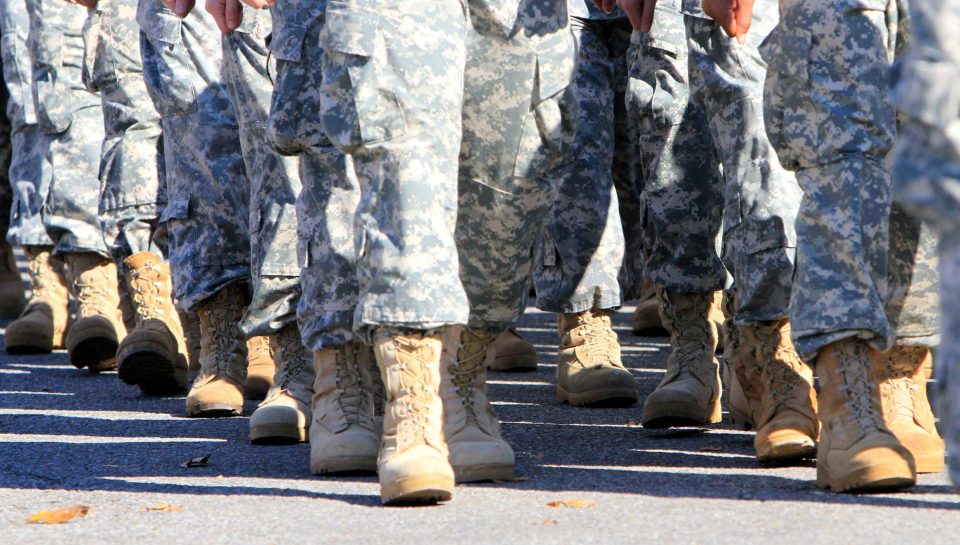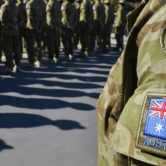The ADF Must Act Now – Another Decade of Inaction Is Unacceptable

For far too long, the systemic issues within the Australian Defence Force (ADF) have been well-documented, studied, and discussed. From multiple inquiries and investigations, to the recent findings from the Royal Commission into Defence and Veteran Suicide (Royal Commission), the truth is clear: nothing has fundamentally changed.
Trigger Warning:
This article contains discussions of suicide, mental health challenges, and trauma, particularly within the Australian Defence Force (ADF) veteran community. These topics may be distressing for some readers, especially those who have experienced similar struggles or losses. If you or someone you know is affected by these issues, please reach out to support services such as Lifeline (13 11 14), Open Arms (1800 011 046), or other local mental health resources. Reader discretion is advised.
The ADF’s leadership and the government have been aware of these problems for decades, yet the culture that fosters abuse, trauma, and mistreatment remains pervasive. It’s not enough that they’ve acknowledged the problem—veterans need action, and they need it now.
Just this week, we received a call from an ADF veteran who, as a minor, endured unimaginable abuse while enlisted. It was only after hearing the findings from the Royal Commission that they finally felt safe enough—decades later—to share their story for the first time. A lifetime of shame, humiliation, and silence had weighed heavily on them. This is simply unacceptable. The ADF must do better, not only for those suffering now but for future generations. We cannot allow this cycle of trauma to continue unchecked.
Decades of Inaction
The findings of the Royal Commission are both heartbreaking and infuriating.
- Since 1997, over 1,600 serving and ex-serving personnel have taken their own lives—more than 20 times the number of personnel who died in active service in that same time.
- An average of 78 serving or ex-serving ADF members have died by suicide each year for the past 10 years. This equates to an average of three deaths every fortnight.
- Between 1985 and 2021, a staggering 2,007 individuals with ADF service died by suicide. However, this may be understating the actual number of servicemen and servicewomen who have died by suicide as those who served before 1985 or whose deaths were not officially recorded as suicide have not been counted in these numbers.
- Suicide rates among veterans remain disproportionately high when compared with the already high rates in Australia.
- Male veterans are 21% more likely to die by suicide than the general population, while for female veterans, the figure jumps to a shocking 81% higher than their civilian counterparts.
These numbers paint a stark picture of institutional failure.
Despite the prior 57 inquiries and 770 recommendations made as a result of various inquiries in the last 20-30 years, little has changed. The ADF and the Department of Veterans Affairs (DVA) continue to resist meaningful reform, and the lives of those who serve and have served our country continue to be put at risk. How many more reports and recommendations will it take before real, lasting change is implemented?
The Youth of the ADF: Vulnerable and Uninformed
One of the most troubling aspects of this crisis is how vulnerable young men and women within the ADF remain unaware of their rights. Reports of bullying, sexual assault, and mistreatment among younger recruits are disturbingly common. Shockingly, the Royal Commission received nearly 6,000 submissions detailing horrific institutional failures, including widespread bullying, sexual violence, and abuse. These young service members often feel they have no safe avenues to report their abuse, leading to long-term mental health struggles that are entirely preventable.
Too many of these recruits feel trapped in a system that fails to protect them, and the chain of command often prioritises maintaining its image over addressing these abuses. The ADF must ensure its youngest members are aware of their rights and have access to independent, external avenues for support and guidance. Without this, we risk condemning another generation to the same fate.
The distressing reality is that we’ve been here before. Over a decade ago, Elizabeth Broderick’s landmark review into the ADF uncovered many of the same issues we are still discussing today—widespread sexual misconduct, systemic bullying, and a culture that silenced victims. Broderick’s work resulted in recommendations aimed at addressing these systemic problems, but unfortunately, little has changed. The issues she highlighted then, continue to be mirrored in the findings of the Royal Commission today. It’s a damning indictment of the ADF’s inability—or unwillingness—to reform.
A Call for Independent Accountability and Trauma-Informed Reform
The Royal Commission’s recommendation for the establishment of an independent body to oversee the implementation of reforms is not just critical—it’s non-negotiable. The ADF and the DVA have demonstrated, time and again, that they cannot be trusted to police themselves. The cultural and structural issues within the ADF are too deep-rooted to be addressed from within. External oversight is the only way to ensure that reforms are not only implemented but enforced.
But beyond oversight, the ADF must adopt a trauma-informed approach in its reforms. A trauma-informed approach acknowledges the profound impact that trauma, abuse and mistreatment can have on individuals and ensures that systems and policies are designed to prevent re-traumatisation. For those who have suffered abuse and trauma within the ADF, the response must be one of compassion, understanding, and support. This approach would transform how the ADF responds to individuals who have experienced trauma—focusing on healing, recovery, and ensuring that their voices are heard and respected. Implementing trauma-informed practices is, in our opinion, an essential part of breaking the cycle of abuse and trauma that has plagued the ADF for decades. These practices would shift the focus from a purely disciplinary or bureaucratic response to one that prioritises the mental, emotional, and psychological well-being of those affected.
The ADF’s deeply hierarchical and insular culture has allowed these issues to remain unchanged and unchecked. The Royal Commission made it clear that this culture poses more danger to personnel than combat itself. This is not just a failure of leadership—it’s a betrayal of those who have dedicated their lives to serving their country.
It’s Time for Action, Not Words
We cannot afford another decade of inaction. With veteran suicide rates 26% higher than the national average for men and 107% higher for women, the situation is nothing short of a national crisis. The recommendations of the Royal Commission are a roadmap to recovery, but they will mean nothing if they are ignored or watered down by those in power. The establishment of an independent body, stronger protections for vulnerable service members, and systemic cultural reform are essential if we are to prevent further tragedies.
The ADF must commit to these reforms, and the government must ensure that they are held accountable. The well-being of current and former service members cannot be allowed to fall by the wayside again.
At Donaldson Law, we stand ready to support those who have been failed by the system. The time for change is now. Anything less would be a continuation of the betrayal that has already caused too much pain.
Crisis Support Services
Suicide Call Back Service 1300 659 467
24-hour counselling service for suicide prevention and mental health. Available via telephone, online and by video chat.
Open Arms 1800 011 046
24-hour mental health support for Navy, Army & Air Force personnel, veterans and their families.
Defence Member and Family Helpline 1800 624 608
24-hour service providing a range of practical and emotional support programs for families facing emergency or crisis.
Defence All-hours Support Line 1800 628 036
24-hour service for Australian Defence Force members and their families providing help to access military or civilian mental health services.
Lifeline Australia 13 11 14 or text 0477 13 11 14
24-hour crisis support service. Available via telephone, online and text chat.




